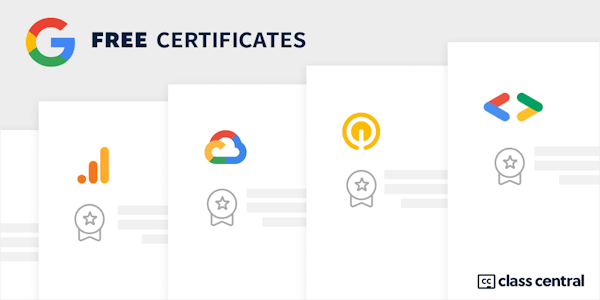Overview
This is the fifth of seven courses in the Google Advanced Data Analytics Certificate. Data professionals use regression analysis to discover the relationships between different variables in a dataset and identify key factors that affect business performance. In this course, you’ll practice modeling variable relationships. You'll learn about different methods of data modeling and how to use them to approach business problems. You’ll also explore methods such as linear regression, analysis of variance (ANOVA), and logistic regression.
Google employees who currently work in the field will guide you through this course by providing hands-on activities that simulate relevant tasks, sharing examples from their day-to-day work, and helping you enhance your data analytics skills to prepare for your career.
Learners who complete the seven courses in this program will have the skills needed to apply for data science and advanced data analytics jobs. This certificate assumes prior knowledge of foundational analytical principles, skills, and tools covered in the Google Data Analytics Certificate.
By the end of this course, you will:
-Explore the use of predictive models to describe variable relationships, with an emphasis on correlation
-Determine how multiple regression builds upon simple linear regression at every step of the modeling process
-Run and interpret one-way and two-way ANOVA tests
-Construct different types of logistic regressions including binomial, multinomial, ordinal, and Poisson log-linear regression models
Syllabus
- Introduction to complex data relationships
- You’ll begin by exploring the main steps for building regression models, from identifying your assumptions to interpreting your results. Next, you’ll explore the two main types of regression: linear and logistic. You’ll learn how data professionals use linear and logistic regression to approach different kinds of business problems.
- Simple linear regression
- You’ll explore how to use models to describe complex data relationships. You’ll focus on relationships of correlation. Then, you’ll build a simple linear regression model in Python and interpret your results.
- Multiple linear regression
- After simple regression, you’ll move on to a more complex regression model: multiple linear regression. You’ll consider how multiple regression builds on simple linear regression at every step of the modeling process. You’ll also get a preview of some key topics in machine learning: selection, overfitting, and the bias-variance tradeoff.
- Advanced hypothesis testing
- You’ll build on your prior knowledge of hypothesis testing to explore two more statistical tests: Chi-squared and analysis of variance (ANOVA). You’ll learn how data professionals use these tests to analyze different types of data. Finally, you’ll conduct two kinds of Chi-squared tests, as well as one-way and two-way ANOVA tests.
- Logistic regression
- You’ll investigate binomial logistic regression, a type of regression analysis that classifies data into two categories. You’ll learn how to build a binomial logistic regression model and how data professionals use this type of model to gain insights from their data.
- Course 5 end-of-course project
- You’ll complete an end-of-course project by building a regression model to analyze a workplace scenario dataset.
Taught by
Google Career Certificates





